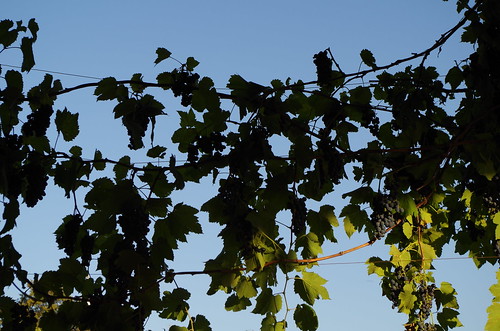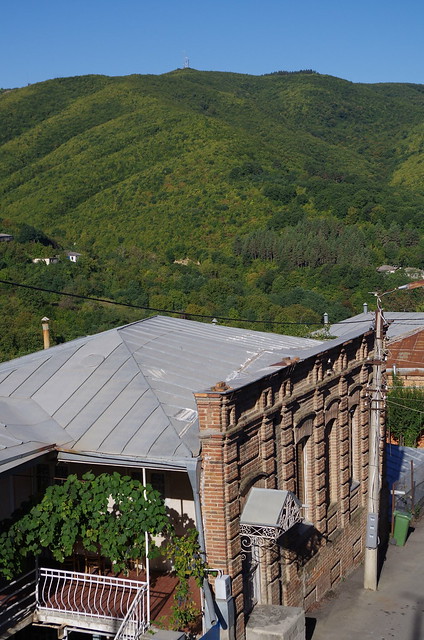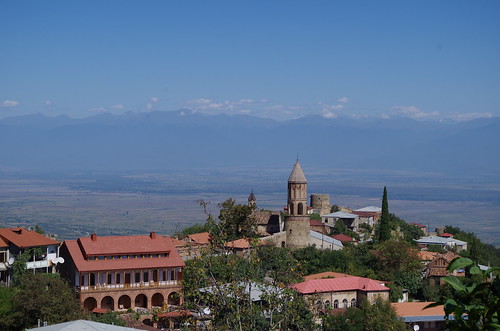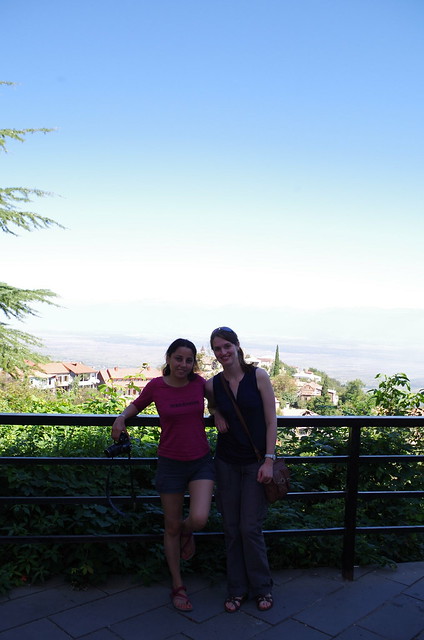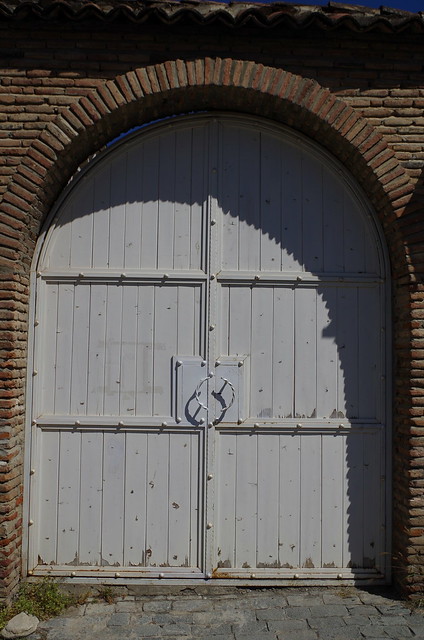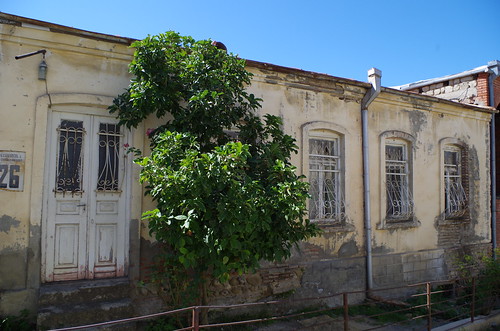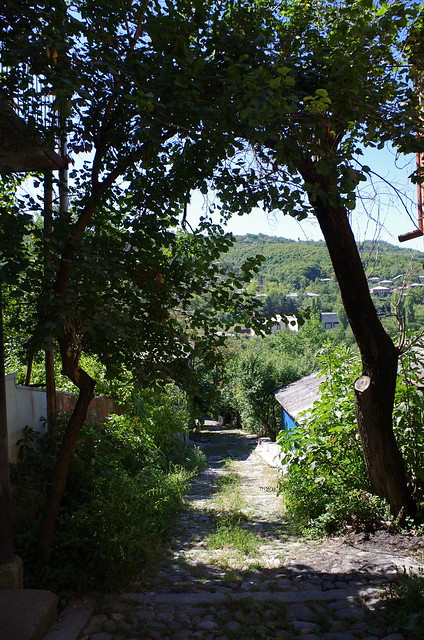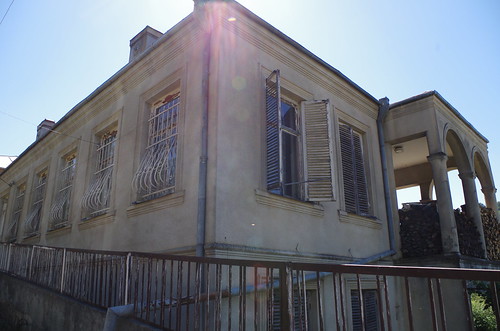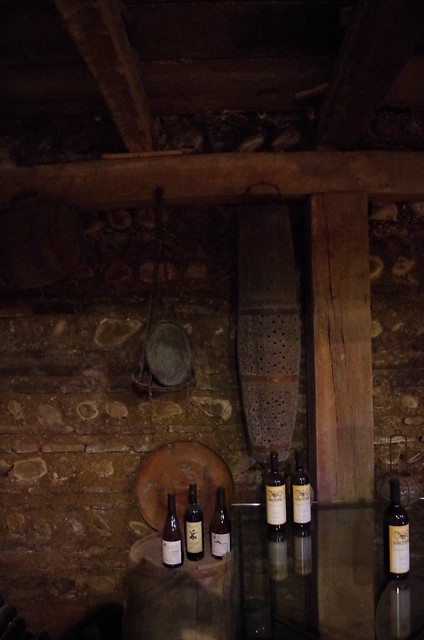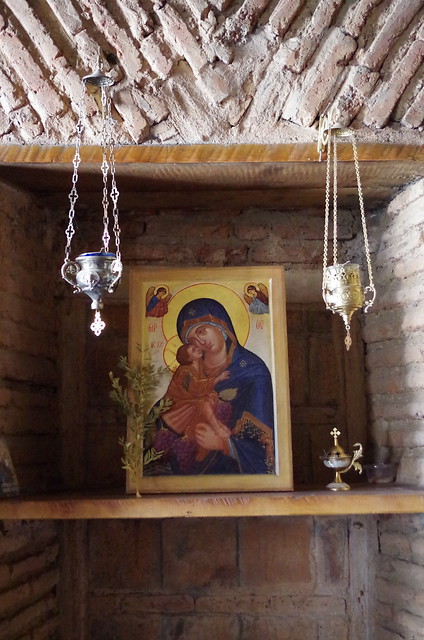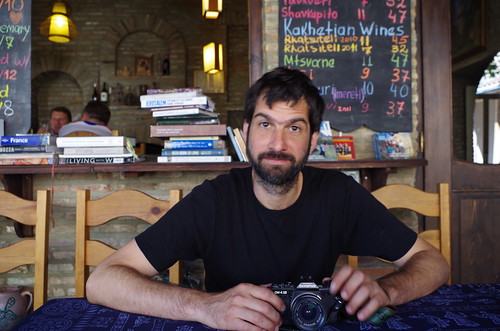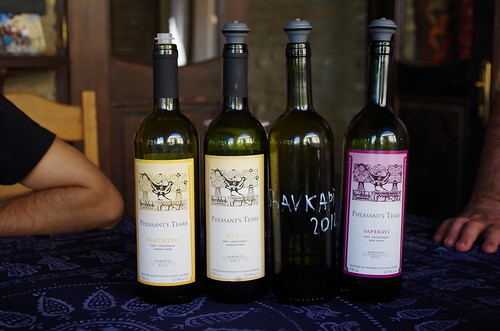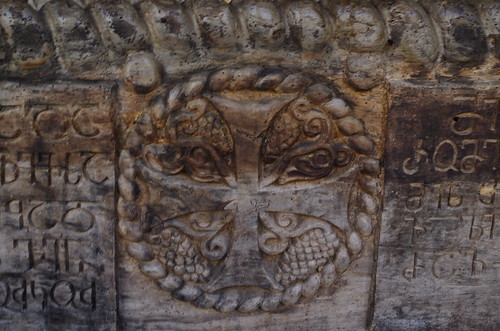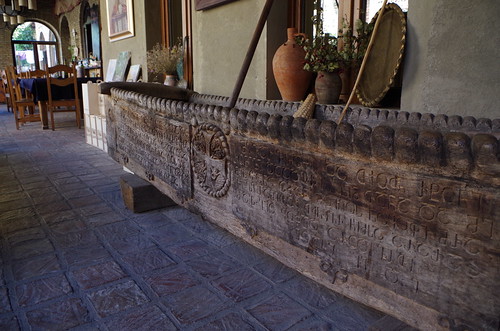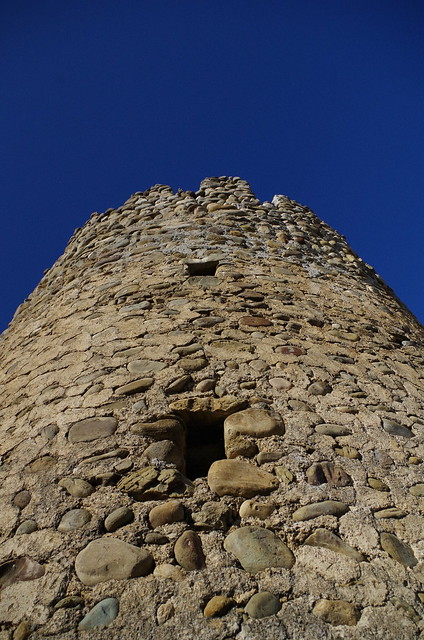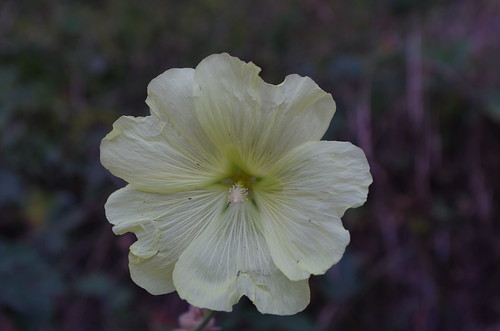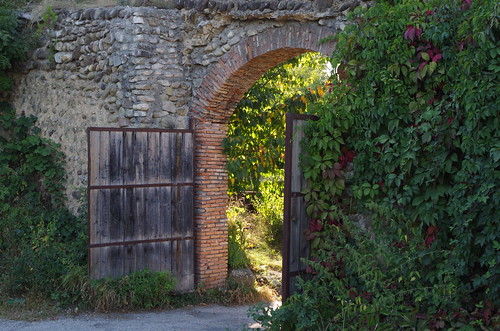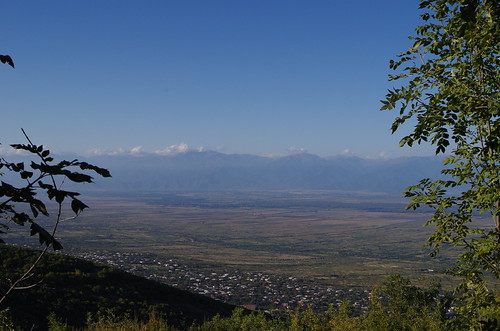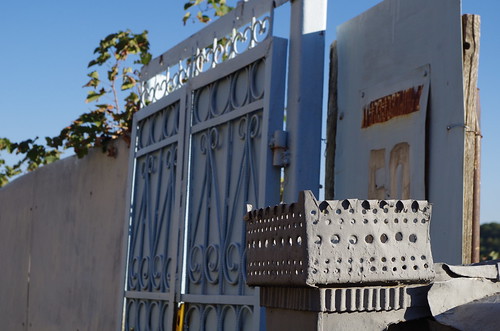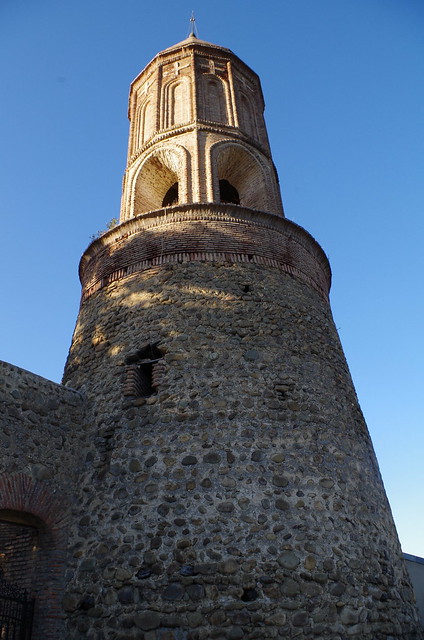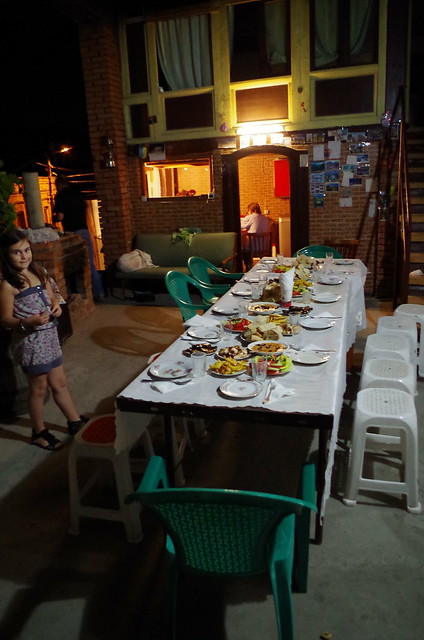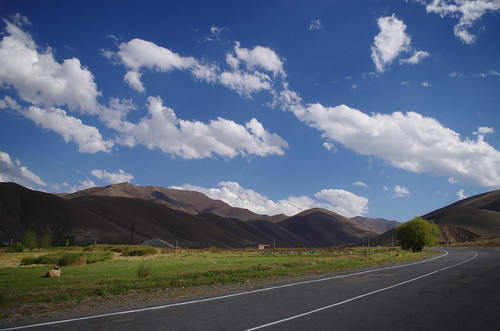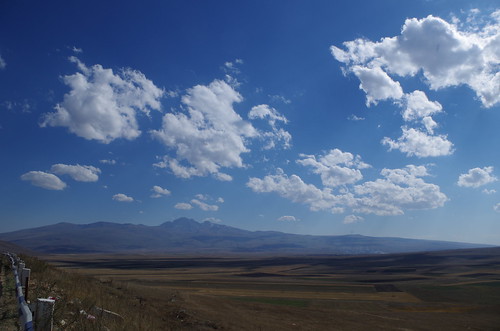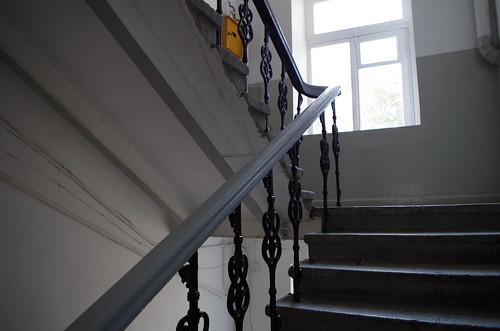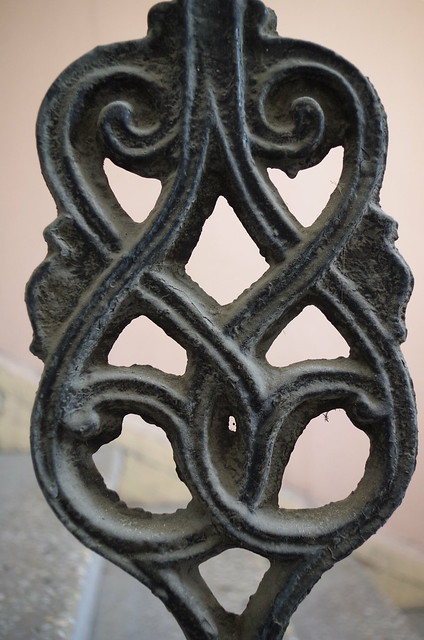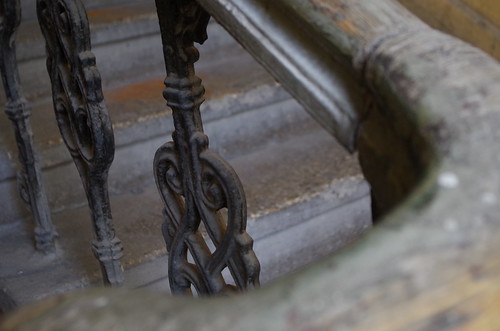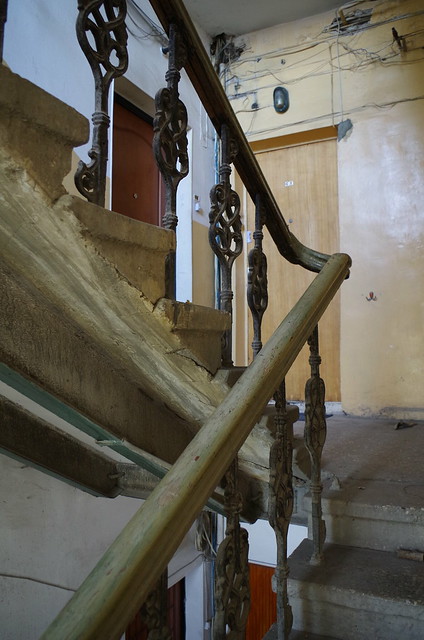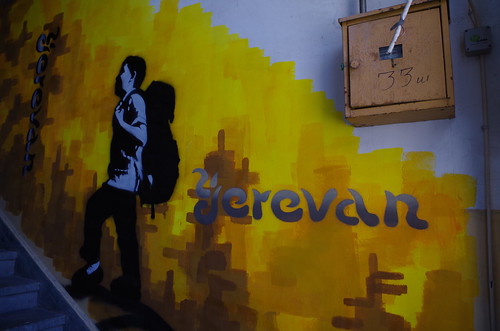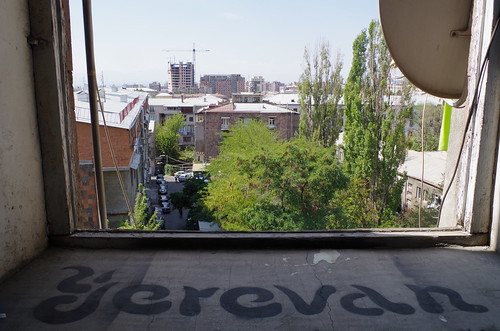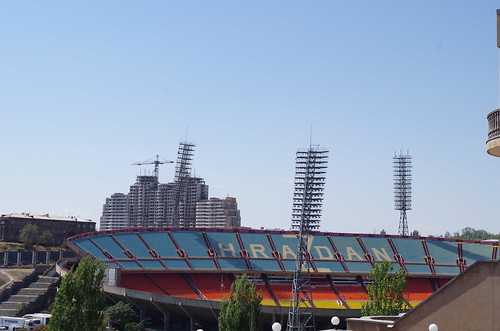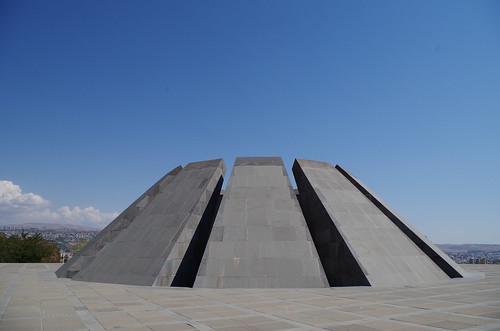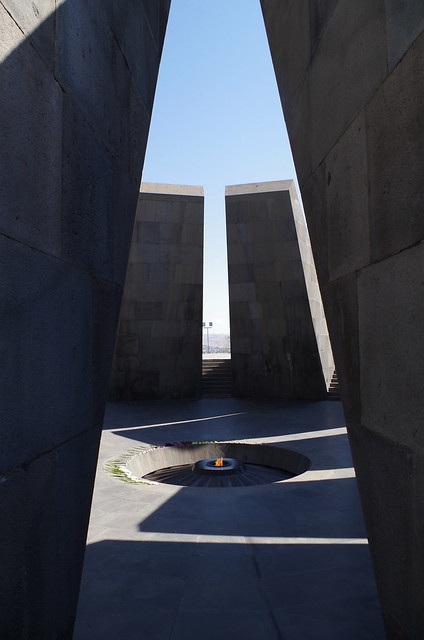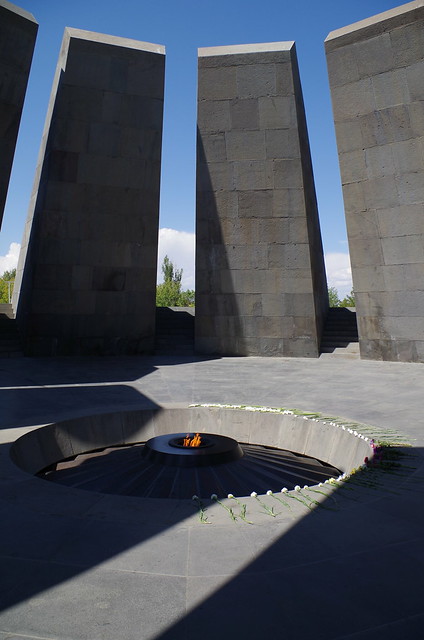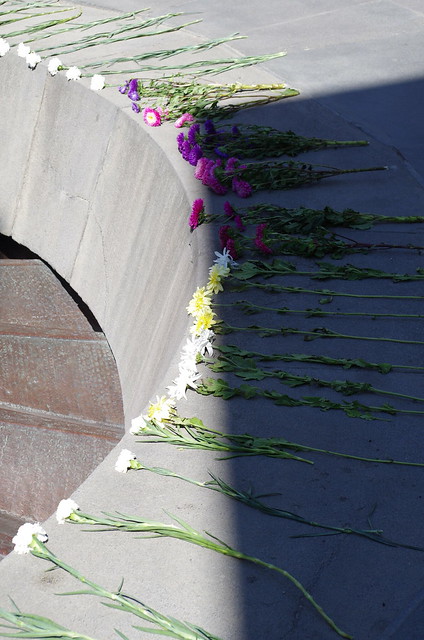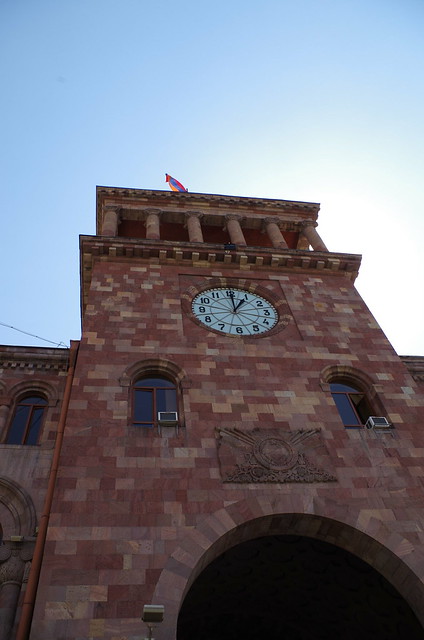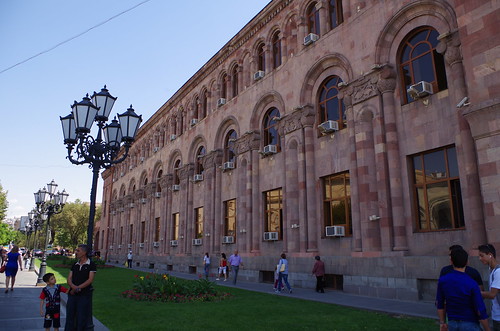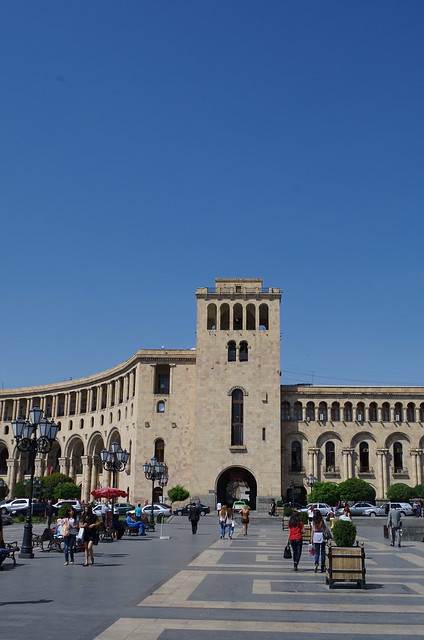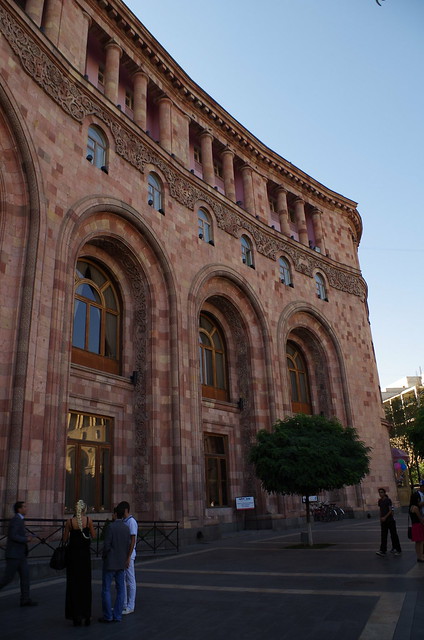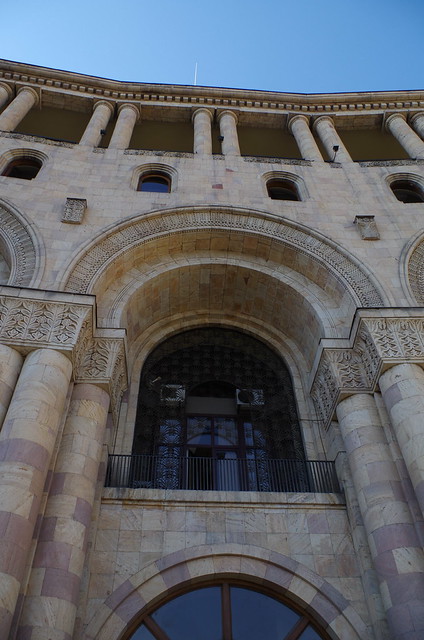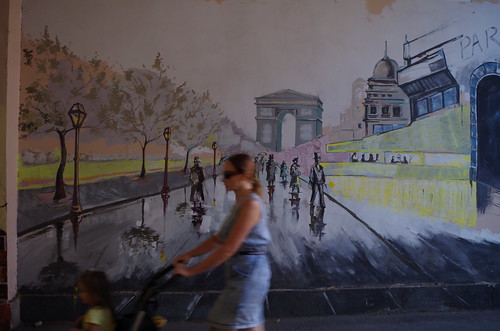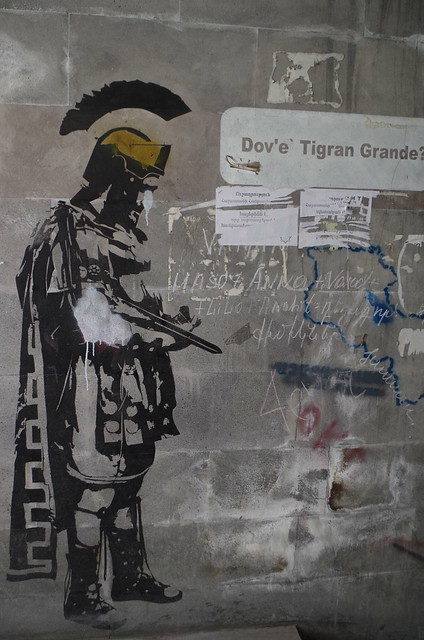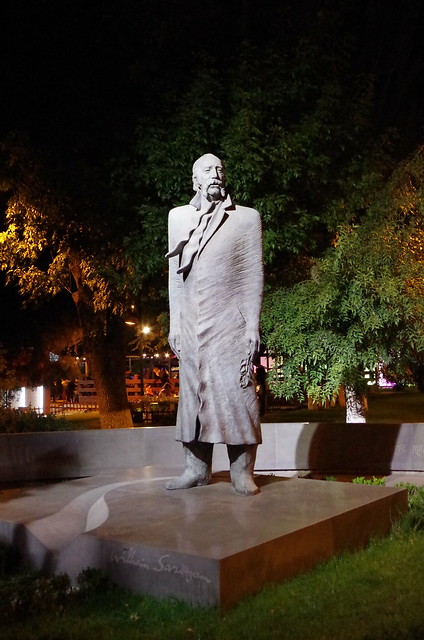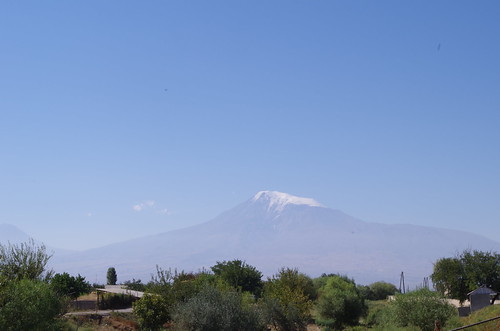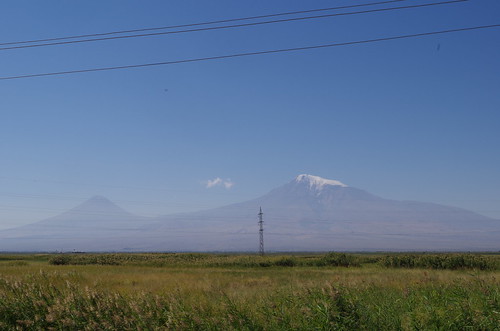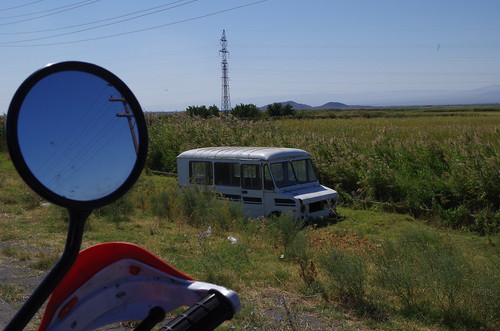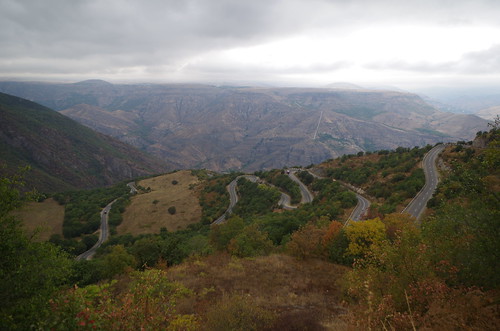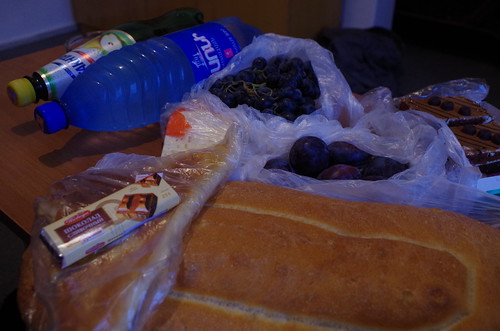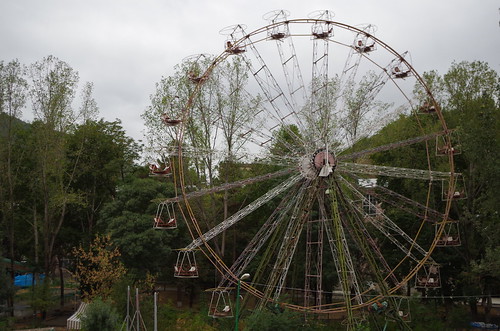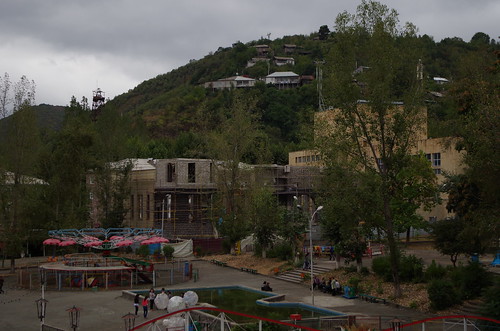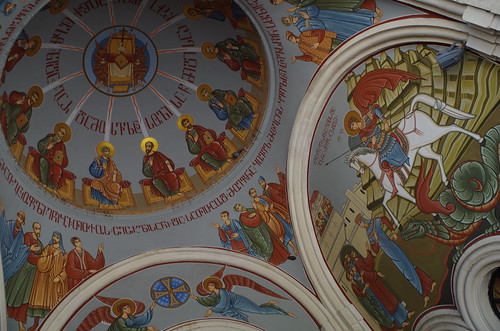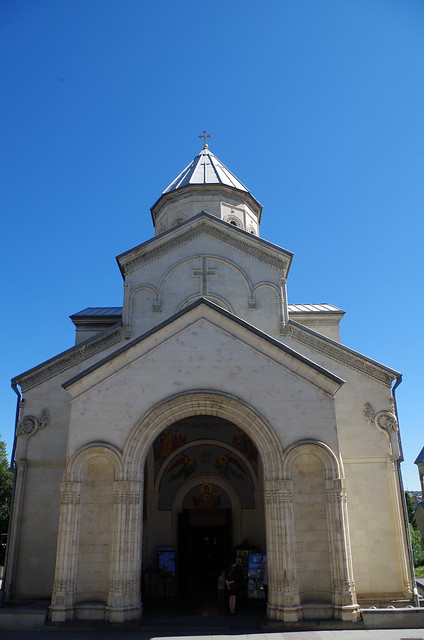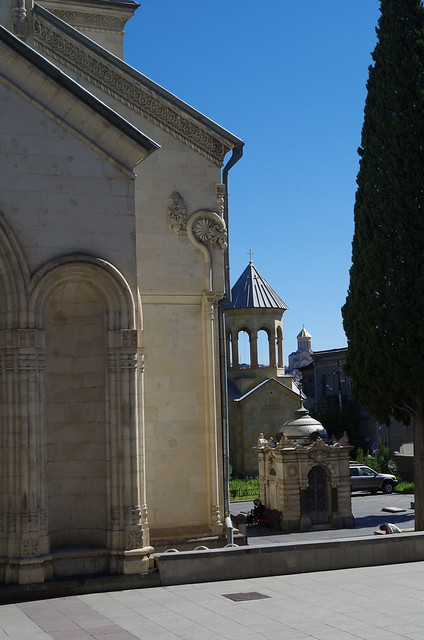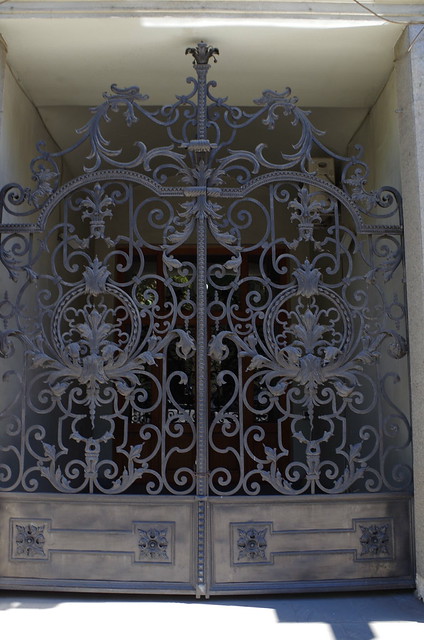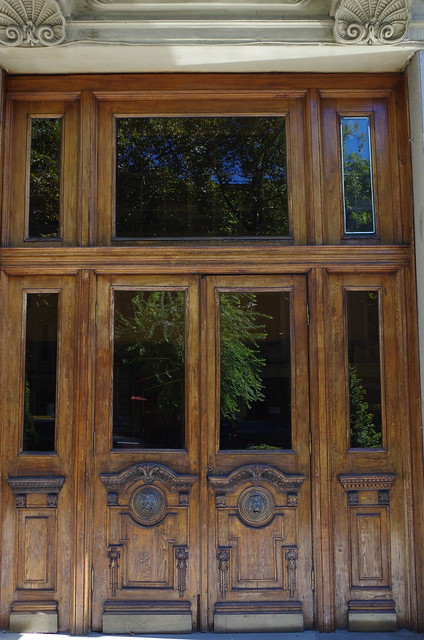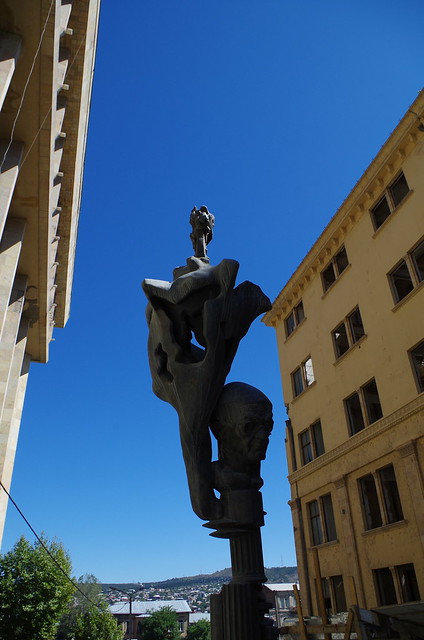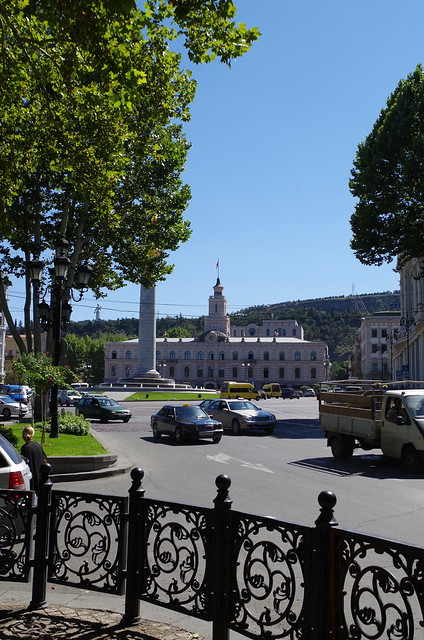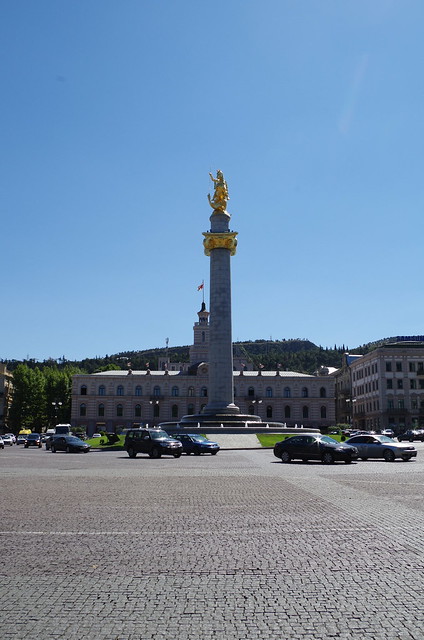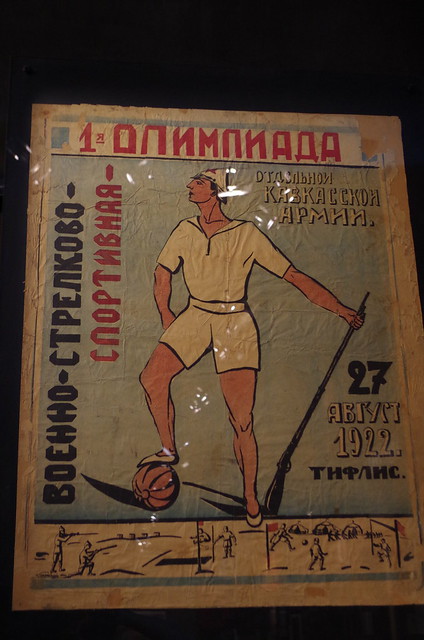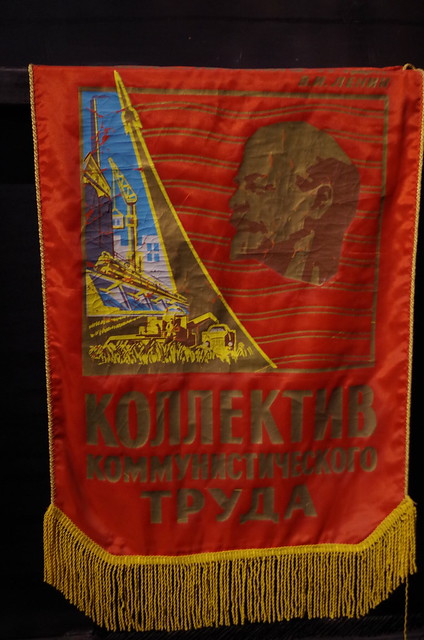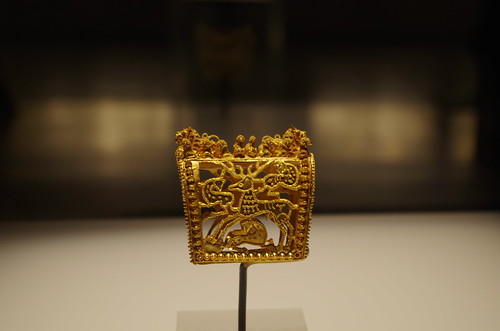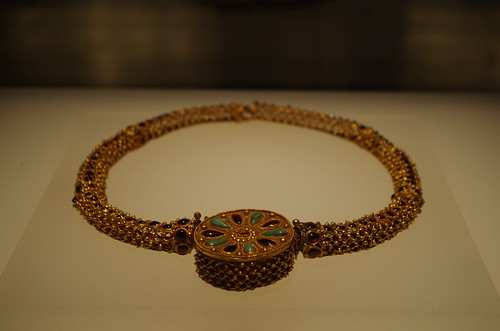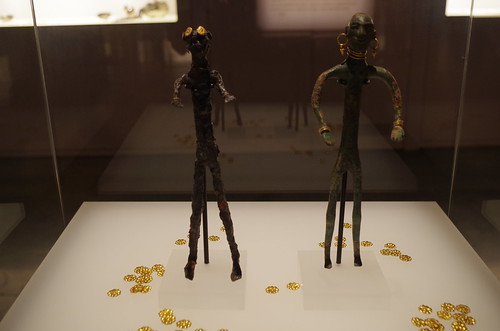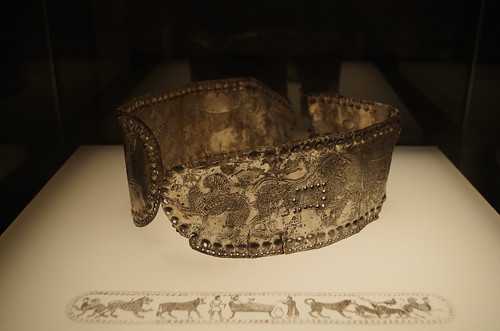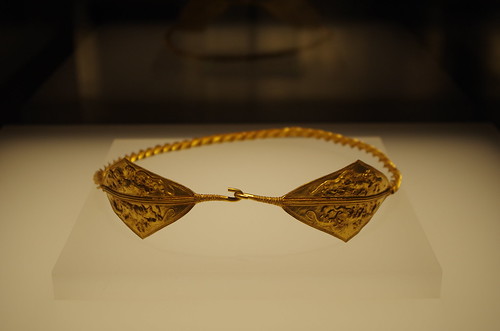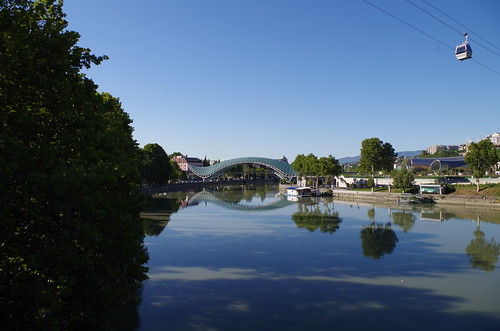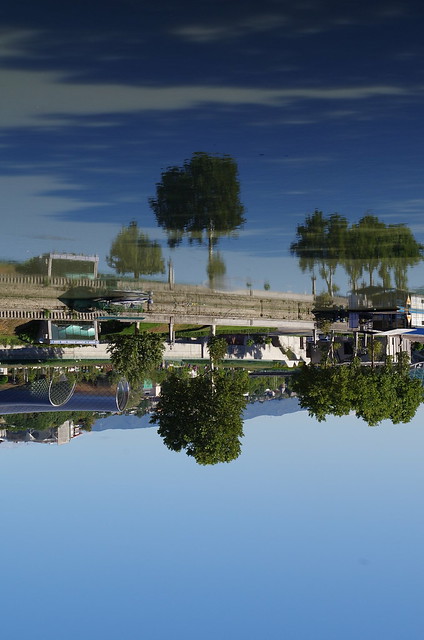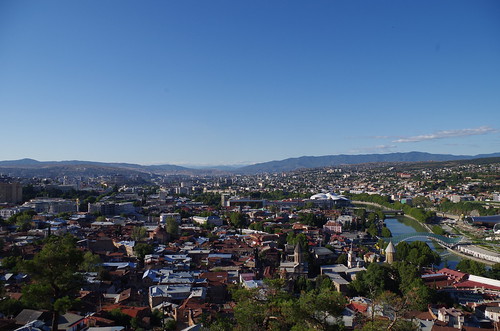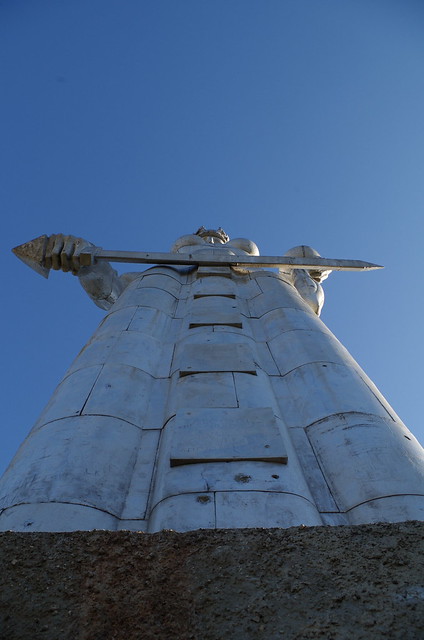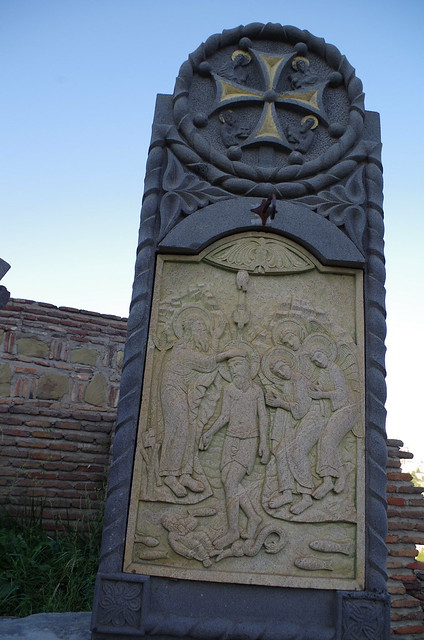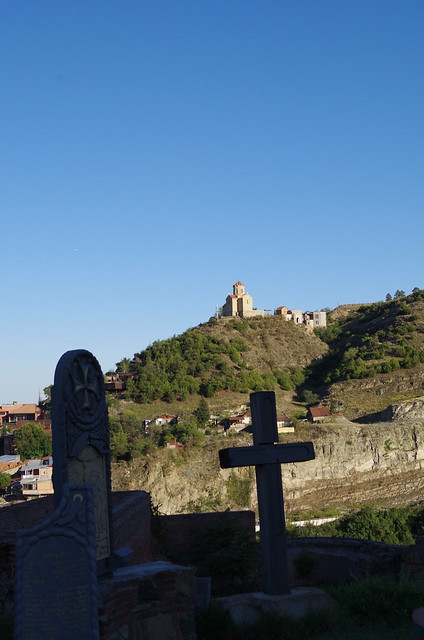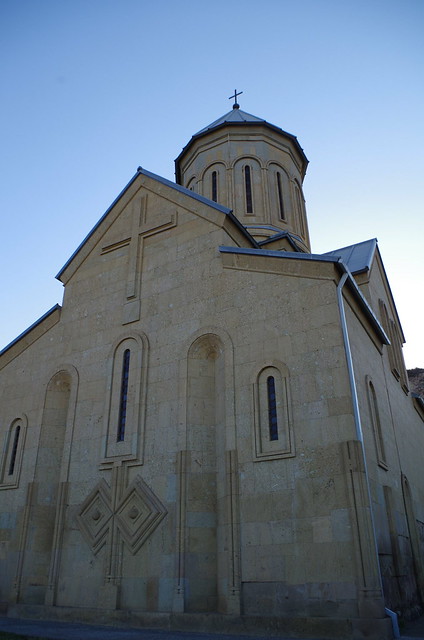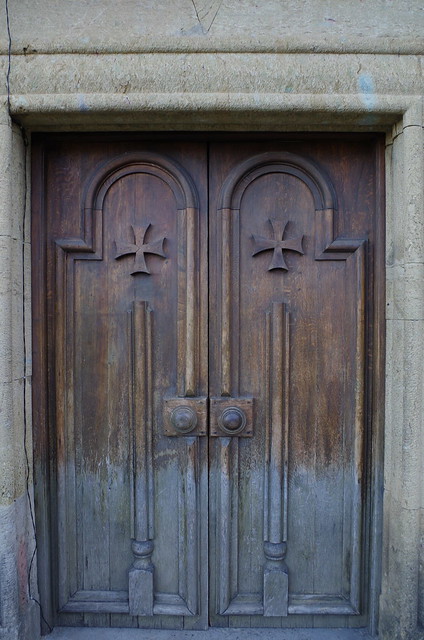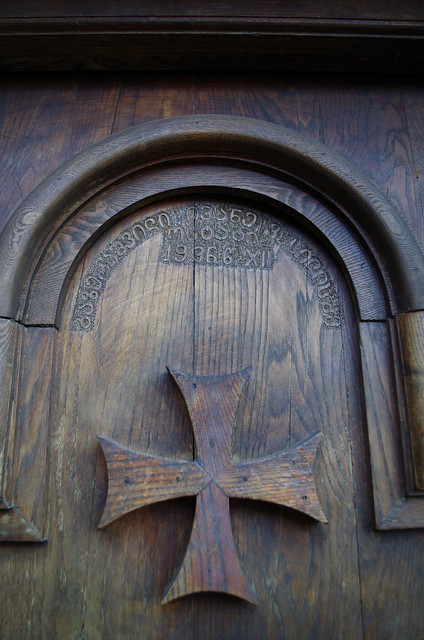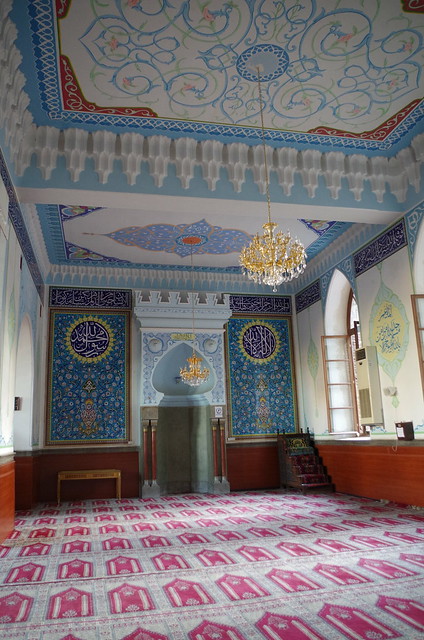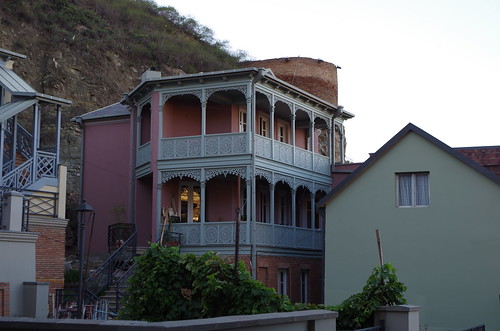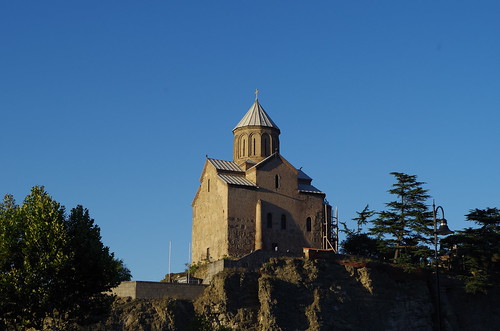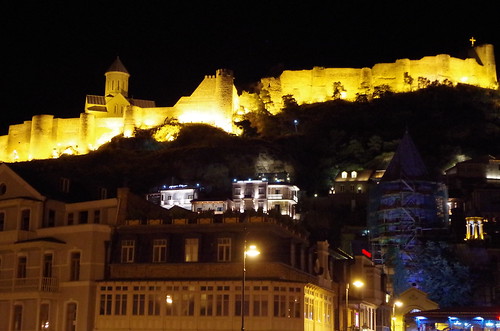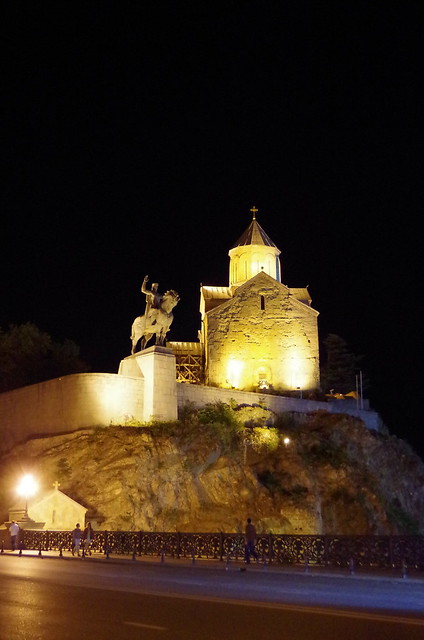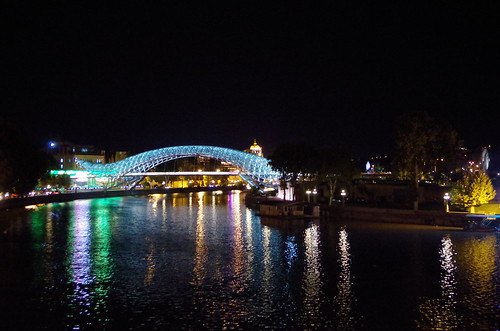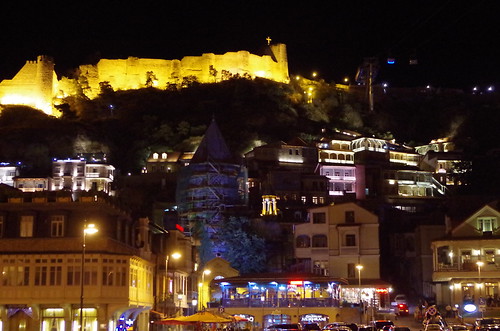We set off from Tbilisi on Sunday at a leisurely pace. This seemed to fit well with the rhythm of the city, as Georgia doesn't quite seem to do mornings, with a lot of people looking slightly shell-shocked prior to 10 a.m. We left the hotel room with minutes to spare on the check-out deadline, and set about trying to find our way out of the city. Despite one of the main roads being closed due to an accident (not exactly surprising), Oli managed to find the way, and we enjoyed a spirited ride to our next destination, the town of Signagi.
Signagi is a small town in the wine producing region of Kakheti, and we had booked ourselves into a guest house online the previous night. We had naively presumed that finding the place would be easy given the size of the town, but had the usual dramas of people never having heard of the road, complicated by the standard Georgian absence of any signs denoting street names. Eventually we struck gold and found somebody who was able to give sensible directions.
Nato and Lado's is a basic but extremely welcoming and friendly guest house. Immediately on arrival we were offered teas or coffees, which we gratefully accepted. We were pleasantly surprised to discover that with the mug of tea came a glass of their home made wine. This pattern was repeated (thankfully excluding breakfast) throughout our two day stay.
After our unexpected afternoon drink, we set out for a stroll around the town. We ended up sharing a bottle of sparkling pear juice on a bench in the park, as several different wedding parties wandered through having their photographs taken. It was only after they had gone that we realised the bottle looked remarkably like cider, and that we must have appeared as two disgraceful alcoholics in the background of somebody's treasured wedding pictures.
We decided to eat out that evening, as there were several nice looking places within a couple of minutes walk. After seating ourselves in the first restaurant and waiting for fifteen minutes without seeing any staff, we sneakily left and went over the street to a restaurant slightly awkwardly named Wine World. This actually turned out to be an excellent choice. The food was very freshly prepared (a long wait, but worth it), delicious, cheap and plentiful. As usual in Georgia, we ended up ordering at least one dish too many and were absolutely stuffed.
We had planned to go on a wine tour the next day, but discovered in the morning that the standard one takes six to eight hours, and involves a lot of drinking at at least three different factories. We opted instead to visit the only winery in the village itself, where we could do a short tasting in the afternoon. As we felt slightly wrong drinking in the morning, we decided to wait and go for a walk instead. We were joined by Soufi from Iran, and had a lovely time chatting about our home countries. Hopefully we will see her again in Tehran.
We wandered back to our hostel for a short rest before we exerted ourselves with our wine tour, and ended up chatting to Doron from Tel Aviv. His girlfriend was sick, so we invited him to join us on our trip, as he didn't want to go on the full tour and leave her all day.
The winery we visited was named Pheasant's Tears, and is located within the village of Signagi. Our guide showed us the wine cellar and examples of the huge clay pots they use to age the wine. The wines are as naturally made as possible and unfiltered, meaning they are missing most of the sulphites and additives found in mass-produced factory wine. Georgian wine making goes back for centuries, and the Pheasant's Tears current head of wine making comes from a family with eight generations' experience. After answering our questions, our guide handed us over to their sommelier, who talked us through four fabulous wines. He was very knowledgeable, and also a very interesting guy. He has also reliably informed us that the wines can be found in some London bars, and Oli and I would highly recommend trying them.
Doron was pleased to discover that Georgian wine was not overly sweet, as he had been informed by people back home in Israel. Our sommelier said this sweetness was characteristic of the wines made during the Soviet period, due to the type of grapes favoured at that time. However, Georgia has over 500 endemic varieties of grape, and each wine at Pheasant's Tears is made using only one kind. After tasting these, we can definitely see ourselves getting into natural, unfiltered wines. As a bonus, apparently due to the lack of sulphites the hangovers are less severe...
Four tasting size glasses of wine were enough to send Oli to sleep for a bit, and after our rest back at the guest-house we went for a walk and explored further. We discovered the old town wall and the pretty streets. Signagi itself appears to have been largely redeveloped in recent years. When Oli asked about this we were told that the government has been paying for houses to be renovated, presumably to make places nicer for tourists. Whilst it has been very tastefully done, the overall effect is just a little sterile and definitely needs to weather slightly. However, many of the back streets are as yet untouched, so there is still plenty of random and prettily scruffy Georgian charm to be found.
Later that evening we wandered back to the guest-house for dinner. As well as ourselves, there were several other couples joining the meal, and we ended up having a multi-national party. Our hosts sang Georgian folk songs and even knew some Israeli and Polish numbers. Despite calls for us and the French / French-Canadian couple to offer up a tune, we somehow managed to get out of it. The wine and cha-cha flowed in a series of toasts to various people and countries, and a great time was had by all.
Thankfully, Oli and I felt surprisingly okay in the morning, and were up as planned to leave for Yerevan. We reached the border within a couple of hours, and enjoyed a very painless crossing. Armenia itself is almost immediately drier and emptier than Georgia, and although Georgia was by no means a rich country, Armenia appeared to be even less affluent. After initially feeling pleased about narrow but well surfaced roads, these quickly began to deteriorate and became rather uncomfortably rough and bumpy.
Just as we were climbing a long and twisty hill and talking once again about how hardcore cyclists must be, we rounded the corner and saw a woman on a bicycle up ahead. As we got closer we recognised her as one half of one of the couples (her husband was up ahead) we had met getting my Iran visa in Trabzon. We pulled over for a chat, and wished each other luck.
The road to Yerevan sadly did not improve, and I spotted several drains with missing covers. Hitting one of those gaping holes on the motorbike does not bear thinking about. The style of driving is certainly less hectic than Georgia, but the traffic is somewhat more unpredictable as a result. The most frustrating thing on the Armenian roads however is the near total lack of road signs denoting either speed or directions. It is not at all uncommon to come upon a large roundabout in a major town, and to see not a single direction sign at any exit. Where direction signs are apparent, they may be only in Armenian and Russian scripts.
Through a mixture of luck and judgment we eventually made it to the outskirts of Yerevan. As we merrily rode along, we saw the dreaded sight of flashing sirens in the mirror, and obligingly pulled over for the police. The officer made a big show of getting out of the car and putting on his over sized hat, and after asking for Oli's license and bike papers told us we had been speeding, and had not stopped at a junction. Said junction was actually more of a slip road and lacking in any signs suggesting that stopping was compulsory or indeed recommended. As we had also not seen a single speed sign during our hours in Armenia and had been going at a sensible pace, we argued with him that the limit was totally unclear, and that we did not actually know what it was as it was not advertised anywhere.
His response to this was to point down the road in the direction we were going, and tell us that there was a speed sign in 100 yards, which was not exactly helpful as we cannot see into the future. He then told us that the fine was 30,000 AMD, or 70 euro. As we argued however, the fine began to drop, first to 30 euro and then to 20 euro. This made us think that it was far from legitimate, and indignantly continued arguing. Eventually his partner told him to leave it, and I asked him to write the standard limits down for us so we would know for the future. He refused, and drove off. When we searched for Armenia speed limits later that evening, one of the first things that came up was a post saying that the Armenian police are notorious for corruption in this area of duty, with speed limits randomly dropping as suits them. We also discovered that 30,000 AMD is actually more like 50 euro than 70.
We made it to Yerevan without further incident, and after our standard 'round and around tour of the city, found our hostel in an old building up many flights of stairs and settled in. The people at the hostel were a nice crowd, and we ended up heading out for food with a friendly Scotsman named Shaun. Whilst our food was excellent, Oli and Shaun ended up with totally different dishes despite ordering exactly the same thing. There was no need to complain though, as the total bill came in at just under £10 for three meals and three pints.
As we would only have one full day in the city, our main aim was to see the genocide memorial and accompanying museum. Blithely looking at the map in the hostel in the morning, we decided it was perfectly walkable and set off. Ah, the benefit of hindsight. The map we had with us cut off before the museum, and we ended up walking a long way around the city and searching in completely the wrong area. Eventually, we found a taxi driver who was willing to help despite not speaking English, and drove us to his office to speak with his manager. After showing where we wanted to go on the boss's computer and discovering we were four kilometres out, we happily took a taxi there.
The memorial is tasteful, thought provoking and moving. Huge pillars of stone lean in and encircle an eternal flame, itself ringed with flowers left by visitors. Overlooking the city, the monument is an atmospheric reminder of a difficult time in the Armenian past. The accompanying museum is set a respectful distance away, and provides an informative and thoughtful look at a dreadful event. Despite the painful and often disturbing content, we were both very glad we had visited.
Due to our getting lost, the excursion had taken up most of the day. Instead of trying to cram too much in, we wandered through the city streets and took in Yerevan's relaxed atmosphere. This is a fairly newly built city with a slightly quirky vibe away from its grand centre. As we strolled along, we noticed wonderfully detailed murals and graffiti adorning some of the walls.
We woke up today to our last day in the country before heading to Iran, with the town of Kapan as our aim. The first part of the route after Yerevan took us past the beautiful and dramatic mount Ararat (actually in Turkey), which has a special place in the Armenian conscience. The road began to climb higher, and the ride transformed to one of our most challenging journeys yet. We wound our way through a mountainous and arid landscape, across a bone shakingly bad road surface, dodging any especially large holes. In places (bearing in mind this is a main road), farmers drove herds of cattle and sheep down the road, and we had to negotiate our way through them. From when we passed Goris, around 40 miles from our destination, the road snaked up and down, up and down over the mountains. As if the hair-pin bends and goods lorries weren't enough for Oli to deal with, we also had to negotiate the back-breaking road surface, which in places had the appearance of a rucked carpet.
We have made it to Kapan in one piece, and I have to say it is one of the most singularly depressing towns I have ever had the misfortune of spending the night. Mainly consisting of shabby Soviet style apartment blocks, it has a neglected air that was certainly exacerbated by the overcast sky. When we arrived at the hotel, the receptionist was not only unaware of our booking, but also of the existence of the website that we had used to facilitate it. After much discussion and neither of us understanding one another, we eventually resolved the issue and settled into our room. Happily, the room is very decent indeed for the price, and the lovely and friendly cleaning ladies that work here have more than made up for the irritable receptionist.
Not exactly feeling like going out on the town, Oli and I instead went to the supermarket and treated ourselves to a feast. We bought the below for about £3, munched ourselves silly, and are feeling very much better about things.
This will most likely be the last post for a while, as we head to Iran tomorrow. Whilst we have not had a bad time in Armenia, it felt like a bit of a let down after wonderful Georgia, and we are leaving it without regret. We are both incredibly excited for Iran, and looking forward to tomorrow!
